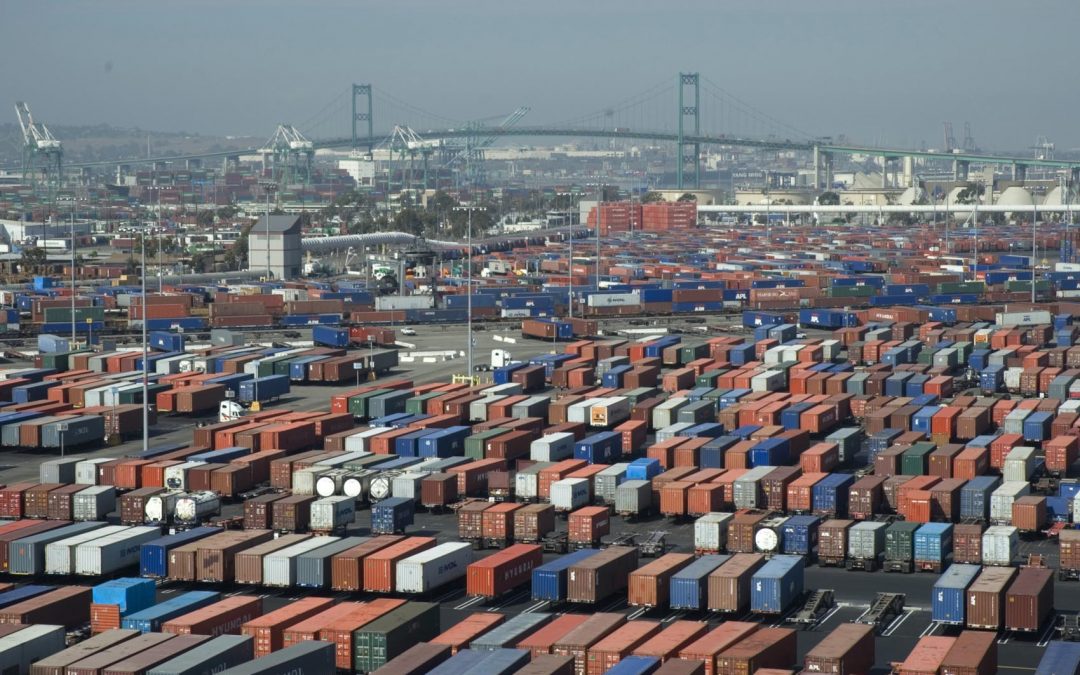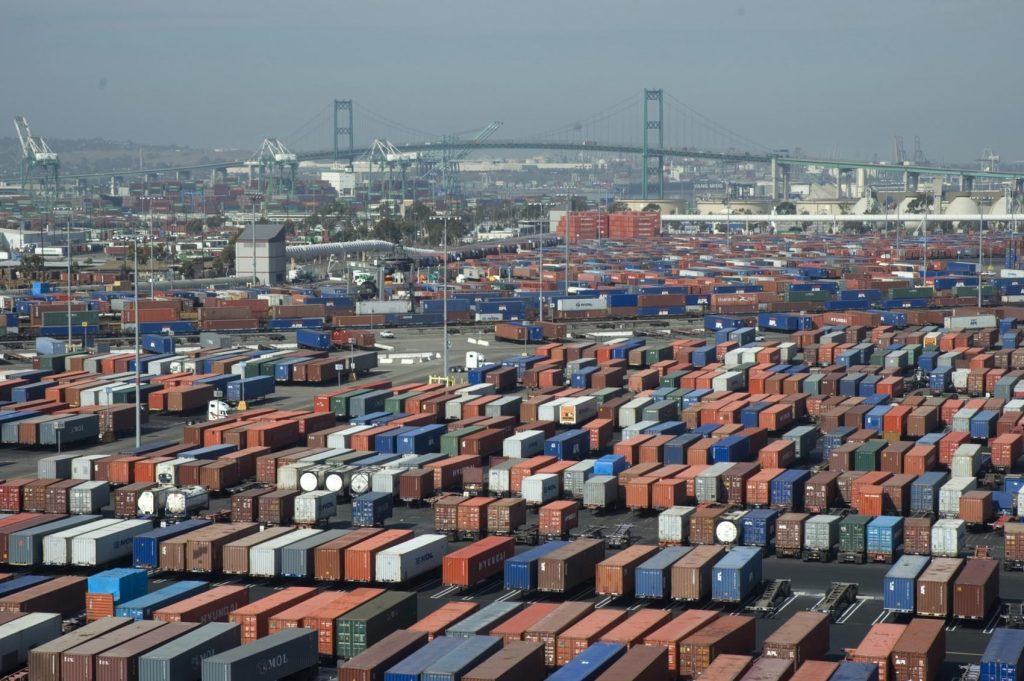
by Elizabeth Hines | Aug 17, 2015 | Blog, Leadership, Strategy

Although our economy has rebounded since the 2008 downturn we have come to realize that the days of abundant resources are gone. Our current and future economic reality consists of scarce resources and a shrinking opportunity base. Managers face the challenge of expanding their business and reducing their spending, while still making meaningful progress now and into the future.
Whether you are a small, mid-market, or Fortune 500 company, you will recognize the challenge of reconciling your management needs in the face of budget reductions. Doing things the same old way is not effective. You need a way to quickly turbo charge your business without breaking the bank. The question remains — how? Leading companies have used a secret weapon against these challenges for years: interim management services strategy.
Here are 4 questions to ask yourself to determine if interim management services are right for you:
- In your current or last budget cycle have you been asked to raise your profit targets with flat or reduced expenses?
- Do you have a customer or market segment that is a good fit for your company, but you don’t have the resources or time to explore, define and win that business?
- Do you need management expertise in a specific area, but don’t want to make a full time hire or can’t afford to make one?
- Do you have a window of opportunity to make a meaningful business move but can’t afford the ramp up time or learning curve to make the most of it?
If you answered yes to any of the above questions, an interim management services strategy is a weapon you should think about using too. Think of it as “management as a service”. A model designed to provide specific executive, management, sales or operational expertise when and where you need it, for exactly as long as you need it, at a fraction of the time and cost expense of hiring, assimilating and assigning a full-time professional.
Interim management services allow you to make meaningful progress in your strategic initiatives without incurring a large upfront investment in time, people, or budget. It allows you to easily navigate unique challenges, fill leadership voids during transitions, or obtain expertise on special projects and initiatives. It’s effective and efficient talent, when you need it, for how long your needs exist.
Add an interim management strategy to your strategic arsenal and watch your business grow.
Fronetics Strategic Advisors is a leading management consulting firm. Our firm works with companies to identify and execute strategies for growth and value creation.
Whether it is a wholesale food distributor seeking guidance on how to define and execute corporate strategy; a telematics firm needing high quality content on a consistent basis; a real estate firm looking for a marketing partner; or a supply chain firm in need of interim management, our clients rely on Fronetics to help them navigate through critical junctures, meet their toughest challenges, and take advantage of opportunities. We deliver high-impact results.
We advise and work with companies on their most critical issues and opportunities: strategy, marketing, organization, talent acquisition, performance management, and M&A support.
We have deep expertise and a proven track record in a broad range of industries including: supply chain, real estate, software, and logistics.

![Workplace diversity impacts the bottom line [Infographic]](https://fronetics.com/wp-content/uploads/2024/10/Workplace-Diversity-Fronetics-Infographic-795x675.jpg)
by Fronetics | Aug 3, 2015 | Blog, Diversity, Leadership, Strategy
“A diverse organization will out-think and out-perform a homogeneous organization every single time”. A. Lafley, CEO – Procter & Gamble
Recent research conducted by McKinsey & Company found that when it comes to the bottom line, diversity matters. Specifically, companies in the top quartile for gender diversity are 15% more likely to have financial returns above their respective national industry medians, and when it comes to ethnic diversity the financial returns are even greater – 35%. McKinsey & Company note that “correlation does not equal causation;” however, “the correlation does indicate that when companies commit themselves to diverse leadership, they are more successful.”
Why are diverse companies more successful? McKinsey & Company believe diverse companies are better able to attract and retain top talent, improve their customer orientation, and have higher employee satisfaction rates than companies that are not diverse. Arrow Electronics’ Cathy Morris points to an additional reason: “Diversity enables better decision-making and diminishes groupthink.”
Workplace diversity has a significant and positive impact on the bottom line – and on the day to day success of your company. How diverse is your company? What can you do to increase diversity within your company?
![Workplace Diversity [Infographic]](https://fronetics.com/wp-content/uploads/2024/10/Workplace-Diversity-Fronetics-Infographic-scaled.jpg)
Fronetics Strategic Advisors is a leading management consulting firm. Our firm works with companies to identify and execute strategies for growth and value creation.
We advise and work with companies on their most critical issues and opportunities: strategy, marketing, organization, talent acquisition, performance management, and M&A support.
We have deep expertise and a proven track record in a broad range of industries including: supply chain, real estate, software, and logistics.


by Fronetics | Jul 29, 2015 | Blog, Content Marketing, Leadership, Marketing, Strategy

In an interview with the Kitchn, Food Network’s Barefoot Contessa Ina Garten shared her top three secrets to hosting a successful dinner party – plan ahead, use your best stuff, and have fun building and sustaining relationships with those around you. Her focus may be food, but her advice is applicable to marketing and sales professionals. Undeniably, lead nurturing is remarkably similar to hosting a dinner party.
Using the dinner party strategy, let’s take a look at how your business can actively build relationships with prospects and advance the movement of leads through its sales funnel.
Clean house
As the host of an upcoming dinner party, it’s unlikely you’d host people in your home without first getting it in tiptop shape. The same should be true for your website, your company’s online home. As part of your preparation for a lead nurturing campaign, review your website and make any necessary modifications so that it presents the best digital representation of your business. Beyond increasing conversions, having an attractive, modern website that’s free of broken links and out of date contact information serves to establish your company’s website as a trusted resource for information.
Decide what to offer guests
Preparing a dinner party menu for a number of people requires some forethought and planning. For instance, what type of food would your guests enjoy? Do any guests have food allergies or aversions for which you need to plan? Just as you would build the menu for your dinner party, the decision about what content you’ll offer will be guided by the preferences and content needs of your leads. Create content that is relevant to your leads and make sure to identify appropriate channels of distribution in order to extract maximum value from your content.
Determine when and how you’ll serve menu items
Traditional dinner parties start with appetizers and move from one course to the next until after the dessert wine is poured. Similarly, the lead nurturing process is intended to push content to leads in a linear fashion, with the ultimate goal being that they’ll emerge as customers. Once your content “menu” is set, you’ll want to decide how you’ll serve them up to your leads. To do that, align content with where your leads happen to be in the buyer’s journey. Leads will enter and exit your lead nurturing campaign at different points, and that’s okay, just be certain that your content is relevant to leads in their specific stage. Regardless, each nurturing touch should be focused and specific and include a call to action to promote advancement in the buyer’s journey.
Create and sustain dialogue
Beyond sharing a meal, it’s likely that you’ll also take part in spirited conversation with your dinner party guests. While it’s certainly acceptable to offer up topics of discussion, your guests will not enjoy you dominating the conversation. Meaningfully adding to the conversation builds relationships not just by showing expertise, but by showing genuine interest. In other words, don’t view the lead nurturing process as a way to blast your prospects with promotional information or marketing materials; treat it as a dialogue. The best lead nurturing campaigns are designed to learn as much about your leads as you would have them learn about your company.
Say thank you
As host, at the end of the night when guests grab their coats and head toward the door, it’s polite to thank them for attending your dinner party. Extend that same courtesy to your customers and leads. Whether it’s by showing gratitude to current customers for their continued support or showing appreciation to leads for their download, saying thank you goes a long way in building connections and professional relationships.
What’s required to run a successful lead nurturing campaign is building trust and establishing relationships with prospects and leads as you develop them into customers. Most of the effort involved in hosting a dinner party happens before guests arrive, so hosts are free to enjoy interaction and conversation with guests during the party. Lead nurturing can be approached much in the same way you’d plan and execute a dinner party. Developing a thoughtful lead nurturing campaign will almost always ensure meaningful – and memorable – communication.
Want to learn more about lead nurturing? Check out these 30 tricks and tips that will change the way you nurture leads.
Fronetics Strategic Advisors is a leading management consulting firm. Our firm works with companies to identify and execute strategies for growth and value creation.
Whether it is a wholesale food distributor seeking guidance on how to define and execute corporate strategy; a telematics firm needing high quality content on a consistent basis; a real estate firm looking for a marketing partner; or a supply chain firm in need of interim management, our clients rely on Fronetics to help them navigate through critical junctures, meet their toughest challenges, and take advantage of opportunities. We deliver high-impact results.
We advise and work with companies on their most critical issues and opportunities: strategy, marketing, organization, talent acquisition, performance management, and M&A support.
We have deep expertise and a proven track record in a broad range of industries including: supply chain, real estate, software, and logistics.


by Fronetics | Jul 28, 2015 | Blog, Leadership, Marketing, Strategy
 Only 1 in 10 professional marketers describe their lead nurturing efforts as “highly efficient and effective.” For most businesses, that’s simply not good enough. We’ve compiled the 30 greatest lead nurturing lessons into a guide. In it, you’ll learn the secrets of how top companies generate leads and nurture them into customers.
Only 1 in 10 professional marketers describe their lead nurturing efforts as “highly efficient and effective.” For most businesses, that’s simply not good enough. We’ve compiled the 30 greatest lead nurturing lessons into a guide. In it, you’ll learn the secrets of how top companies generate leads and nurture them into customers.
This guide will teach you:
- What makes killer performing landing pages
- The best lead-generating content
- How to create offers that are impossible to ignore
- Secret website optimization tips with A/B testing
- …and more!
This is your guide to start generating more high-quality sales leads today. Learn the tricks and tips you can use to nurture leads. Download it now.
Fronetics Strategic Advisors is a leading management consulting firm. Our firm works with companies to identify and execute strategies for growth and value creation.
Whether it is a wholesale food distributor seeking guidance on how to define and execute corporate strategy; a telematics firm needing high quality content on a consistent basis; a real estate firm looking for a marketing partner; or a supply chain firm in need of interim management, our clients rely on Fronetics to help them navigate through critical junctures, meet their toughest challenges, and take advantage of opportunities. We deliver high-impact results.
We advise and work with companies on their most critical issues and opportunities: strategy, marketing, organization, talent acquisition, performance management, and M&A support.
We have deep expertise and a proven track record in a broad range of industries including: supply chain, real estate, software, and logistics.


by Fronetics | Jul 23, 2015 | Blog, Leadership, Strategy, Supply Chain

There are many companies in the supply chain that are good at what they do. However, not all companies “do well by doing good.”
Here are 6 companies who are doing well by doing good:
Lego: In a recent move to “significantly reduce [Lego’s] impact on the planet” the company is investing $150 million over 15 years to fund 100+ new employees to work at their sustainable material center in Denmark. The objective is to yield a more environmentally friendly material that will go into making Legos. The company has already been working with environmental groups, cutting packaging sizes, and investing in wind power.
Seventh Generation: In addition to LEED-certified offices, low-emission cars, and efforts to use renewable energy in its manufacturing, the Vermont-based company awards bonuses to employees who dream up more sustainable products for their lines of environmentally-friendly household and personal-hygiene products. They ranked at the top of B Plan’s “best for the environment” list in 2014. They are a company who self-identify as being champions of “honesty, responsibility, and radical transparency in commerce.”
Stonyfield Farms: In working with materials source and supply chain mapping company, Sourcemap, Stonyfield highlights the farmers who provide the main ingredients in their organic food products. By creating transparency in their supply chain, they empower customers to make healthy, informed decisions and they create stronger partnerships with suppliers.
Sustain Condoms: The company focuses on responsibility in more ways than one. They produce fair-trade, vegan condoms and organic, toxic-free lubricants. They concern themselves with social and health issues, as well as the environment: “When we think about sustainability, we don’t just think about the environment. “We think holistically about what is required for the planet and the people living on planet to live in harmony with nature and each other. So, with Sustain Condoms, we look at every aspect of condom manufacturing starting with the rubber tree plantation.” The company also donates 10% of their pre-tax profits to women who are unable to access the healthcare they need.
Patagonia: The large, high-end clothing and outdoor equipment company produces products that are “environmentally preferred”, in other words they are organic, recycled or environmentally sound. The company is utterly focused on being a responsible supply-chain-based company, ensuring safe, legal, fair, and humane working conditions through total transparency. They also give 1% of sales to environmental groups worldwide.
Coca-Cola: On the company’s website, just next to the first tab “Our Company”, you’ll find the tab “Sustainability”. The company claims to focus on three main tenants: “Designing consumer-preferred, resource-efficient packaging; eliminating landfill waste; and using recycled and/or renewable materials”. The company has worked hard to reduce use of plastics, aluminum and glass packaging, while working with such organizations and projects as the Bill & Melinda Gates Foundation, Water for People, Thailand Recovery, and the Little Red Schoolhouse Project to help provide water, shelter, education, and basic needs to people around the world.
The list of companies who do well by doing good is impressive, but certainly not long enough. The supply chain is “longer and more complex” than ever before and the impact on sustainability is massive.
Fronetics Strategic Advisors is a leading management consulting firm. Our firm works with companies to identify and execute strategies for growth and value creation.
Whether it is a wholesale food distributor seeking guidance on how to define and execute corporate strategy; a telematics firm needing high quality content on a consistent basis; a real estate firm looking for a marketing partner; or a supply chain firm in need of interim management, our clients rely on Fronetics to help them navigate through critical junctures, meet their toughest challenges, and take advantage of opportunities. We deliver high-impact results.
We advise and work with companies on their most critical issues and opportunities: strategy, marketing, organization, talent acquisition, performance management, and M&A support.
We have deep expertise and a proven track record in a broad range of industries including: supply chain, real estate, software, and logistics.


by Fronetics | Jul 21, 2015 | Blog, Leadership, Strategy, Supply Chain

A “revolution” is what Pope Francis recently called it – the necessity for humans to change attitudes, beliefs, and behaviors in order create a sustainable ecosystem and society. In his encyclical, entitled Praise be to you – On Care For Our Common Home, he called upon all people and organizations to push against the increasing drive for power at the expense of the earth and other human beings, stating, “We are not faced with two separate crises, one environmental and the other social, but rather one complex crisis which is both social and environmental.”
Pope Francis is one large voice in a sea of voices— secular and non-secular— who have been pleading for change for decades. Recent record-breaking temperatures, storms, and droughts cannot be ignored. What is the role of each person in these battles? What is the role of governments, NGOs, companies?
The supply chain impacts: water, environment, raw materials, energy, animals, humans – essentially the entire planet and those who exist on it.
Cathy Morris, senior vice president and chief strategy officer for Arrow Electronics, Inc., calls attention to the fact that “everything hinges on an effective supply chain.” Specifically: “Products can be made, money can be invested, ideas can be brought to fruition, but without the supply chain everything stops.” The scope of influence of this trillion dollar industry has a significant impact on our planet and our environment.
In an interview with the Harvard Business Review, Peter Senge states that the perception of sustainability must shift, “They might not say this, but most companies act as if sustainability is about being less bad. There’s certainly a need to reduce your carbon footprint. But people don’t get excited about incremental changes like that. They need a more ambitious vision.”
The supply chain holds within it the power to impact many things, from stocking your grocery and clothing stores, to making the cars you use to get to those stores, or the pieces of the computer you use to purchase those things online. The supply chain is also the packing and the raw materials to make the packing. It’s the boat, the truck, the train, and the plane to move the materials. From the products to the moving of products, there are few areas of daily living that does not involve the supply chain.
The supply chain also holds within it the power to impact the sustainability of the ecosystem. In the past several decades we have seen increasing evidence that human behavior is altering the state of the earth. According to PWC, “While climate change and increasing temperatures now seem inevitable, there are high levels of uncertainty about the manifestations and magnitude of their impact. What is certain, though, is that climate change will have a multiplier effect on supply chain risk.”
In the 1980s we saw that we, as individuals, were contributing to the hole in ozone layer by emitting man-made gases. Although the ozone appears to be slowly recovering, a larger issue looms: greenhouse gases. The three main gases that traps and heat the earth, Carbon Dioxide (72% of total), Methane (18% of total), and Nitrous Oxide (9% of total), come from our need for energy (power stations 21.3% and Fossil fuel retrieval 11.3%), products (industrial processes (16.8%), transportation (14%), and food (agricultural byproducts) 12.5%) rounding out the top emitters by sector.
In our contemporary pursuit for an easier life, people consume more products, energy, and water. We desire heat when it’s cold, air-conditioning when it’s hot. We want to travel in cars and planes. We want more, better, faster, cheaper. According to the NASA website, “In its Fourth Assessment Report, the Intergovernmental Panel on Climate Change, a group of 1,300 independent scientific experts from countries all over the world under the auspices of the United Nations, concluded there’s a more than 90 percent probability that human activities over the past 250 years have warmed our planet.” The same report showed that “climate change is a material risk to supply chains across industries, and according to the CDP, more than 50 percent of an average corporation’s carbon emissions typically come from the supply chain.”
According to BSR’s report, Business Action for Climate-Resistant Supply Chains, there are five areas of supply chain climate risks that require consideration by all companies:
- The physical risk to suppliers’ assets and operations
- The risk of reduced availability or increased costs of inputs
- The risk of changing regulations in sourcing or distribution markets
- The risk of climate-related disruptions in communities that impact supplier workforce availability and productivity
- Stakeholder, or reputational, risk
We know the facts, we know much of the damage, so now what? Humans contribute, the supply chain contributes. At this point people want to move beyond the blame game and work to improve and, in some cases, reverse the damage. There’s an expectation that individuals will help in this effort, driving more efficient cars, finding renewable sources of energy, and focusing on recycling, but companies are also being asked to do their part, particularly the vast world of the supply chain. According to the UN Global Compact website, “A company’s entire supply chain can make a significant impact in promoting human rights, fair labour practices, environmental progress and anti-corruption policies. However, UN Global Compact participants rank supply chain practices as the biggest challenge to improving their sustainability performance.”
Fronetics Strategic Advisors is a leading management consulting firm. Our firm works with companies to identify and execute strategies for growth and value creation.
Whether it is a wholesale food distributor seeking guidance on how to define and execute corporate strategy; a telematics firm needing high quality content on a consistent basis; a real estate firm looking for a marketing partner; or a supply chain firm in need of interim management, our clients rely on Fronetics to help them navigate through critical junctures, meet their toughest challenges, and take advantage of opportunities. We deliver high-impact results.
We advise and work with companies on their most critical issues and opportunities: strategy, marketing, organization, talent acquisition, performance management, and M&A support.
We have deep expertise and a proven track record in a broad range of industries including: supply chain, real estate, software, and logistics.





![Workplace diversity impacts the bottom line [Infographic]](https://fronetics.com/wp-content/uploads/2024/10/Workplace-Diversity-Fronetics-Infographic-795x675.jpg)
![Workplace Diversity [Infographic]](https://fronetics.com/wp-content/uploads/2024/10/Workplace-Diversity-Fronetics-Infographic-scaled.jpg)







